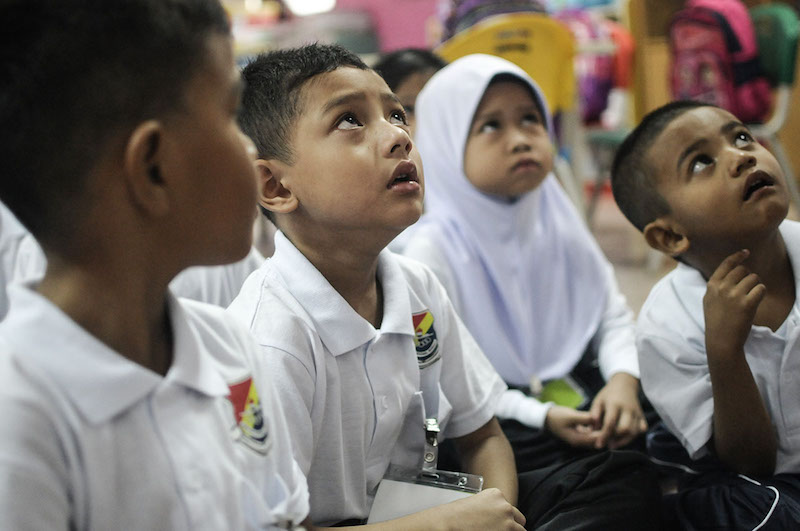KUALA LUMPUR, Feb 4 — Verbal and social bullying has become more common than physical bullying in Malaysia, with greater long-term damage to victims, according to a recent report by the National Human Rights Society (Hakam).
In the Hakam report on Malaysian school bullying released last month, contributing expert and HELP University psychologist on bullying Goh Chee Leong said that statistics by the Education Ministry have shown that over 14,000 school bullying cases occurred between 2012 and 2015.
“For 2014 to 2016 alone there has been a steep rise, from 2,825 to 3,448 cases respectively.
“There may exist a higher prevalence of bullying in residential (boarding) schools, where opportunities increase significantly as students experience 24-hours of contact with each other and a lack of constant adult supervision,” he was quoted saying in the report.
Non-physical bullying often takes place in the form of name-calling, gossiping, stealing money, isolation and exclusion from social circles, according to the report.
It also stated that non-physical bullying is aggravated by cyber-bullying.
“According to CyberSecurity Malaysia’s statistics five cases among students occurs almost every day. 338 cases were reported last year, compared to 291 in 2014,” Goh said.
“The older a victim is, the more serious and sophisticated the bullying becomes, with a more targeted nature. Perpetrators may bully to secure popularity and respect through the assertion of power over another,” he said, adding that despite the occurrence of interracial bullying, it is not considered to be an underlying reason in most cases.
Stressing the grave effects of bullying on victims, Goh said that social bullying has the capacity to isolate children, leaving them feeling completely alienated, creating the potential for long-term effects that extend into adulthood.
“Adults who were bullied as children develop a lack of trust and confidence in building new relationships and contacts. Making matters worse is the general increase of youths suffering from mental health problems,” he said.
Citing the 2015 National Health and Morbidity Survey which stated that 4.2 million Malaysians aged 16 and over experience mental problems, Goh said it is alarming since this marked an increase by 11.2 per cent since 2006.
He also said that only 25 to 30 per cent of schools have staff and certified counsellors who are adequately prepared to deal with bullying cases.
“The rest only have teachers assuming the role while lacking the necessary training in handling the problem. Practices and treatment such as shared concern, which have been proven to be useful and effective in addressing bullying, simply cannot be implemented without appropriate training and qualifications of those in charge,” he said.
Bye Bye Bully Malaysia, an-anti bullying campaign and organisation which also contributed to Hakam’s report, said many schools find it difficult to engage trained psychologists due to financial constraints.
Similarly, fellow contributing organisation Parent Action Group for Education recommended the Education Ministry to allocate funds for this purpose, and assigning psychologists to problematic schools on a rotational basis.




















